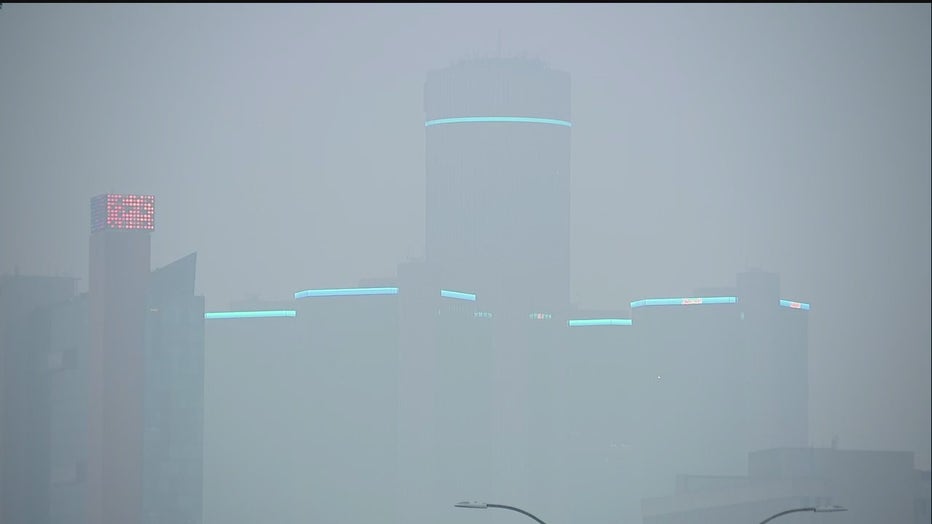Detroit air quality ranks among worst in world - How to protect yourself

Detroit's air quality among worst in world
Detroit's air quality was ranked the second worst in the world Wednesday. Detroit's air quality ranked behind only Dubai. Chicago was ahead of Detroit earlier in the day, but Detroit has since moved up.
DETROIT (FOX 2) - Air quality in the Metro Detroit area is some of the worst in the world Wednesday morning.
Detroit's air quality ranked behind only Dubai. Chicago was ahead of Detroit earlier in the day, but Detroit has since moved up to second worst.
Smoke from Canadian wildfires is covering the air, leading to the poor air quality that can cause breathing issues, coughing, and more.

Detroit's rating Wednesday morning has moved between "unhealthy" and "very unhealthy," and the Air Quality Alert will be in effect through Thursday.
"I would try to avoid keeping windows open," said Dr. Devang Doshi with Corewell Health. "If you do need to go out, try to wear an N-95, try to limit time outdoors."
During unhealthy for sensitive groups (AQI orange) to unhealthy for everyone air quality events (AQI red), the Michigan Department of Health and Human Services (MDHHS) advises the following:
For people with heart or lung disease, pregnant people, older adults aged 65+, children, and teens it is suggested to take the following steps to reduce exposure:
- Avoid strenuous outdoor activities.
- Keep outdoor activities short.
- Consider moving physical activities indoors or rescheduling them.
For everyone else:
- Choose less strenuous activities (like walking instead of running) so you don’t breathe as hard. ‘
- Shorten the amount of time you are active outdoors.
- Be active outdoors when air quality is better.
During very unhealthy or hazardous for everyone air quality (purple to maroon Air Quality Index levels), MDHHS advises the following for everyone:
- Stay indoors with the doors and windows closed using MERV-13 or better air filtration.
- Seek shelter elsewhere if you do not have an air conditioner, and it is too warm to stay inside with the windows closed. Call or text 211 or contact your local health department to find out if there is a shelter or cooling center nearby.
- Use air filters to improve indoor air quality. Whether you have a central air conditioning system or a portable room unit, use high efficiency filters to capture fine particles from smoke. If you don’t have access to those filter systems, you can create a temporary air purifier with a 2012 or newer box fan and attaching a MERV-13 or higher air filter to it. Information is available online.
- Keep activity levels low.
- Avoid outdoor activities.
- Use N95 style masks if you have to be outside.Surgical and cloth masks are not recommended as they are not designed to prevent breathing in the fine particulate matter in wildfire smoke.

Air Quality Alert remains in effect for Metro Detroit
Wildfire smoke continues to blanket the area, with an Air Quality Alert remaining in effect through Wednesday. Alan Longstreet has your full forecast.

